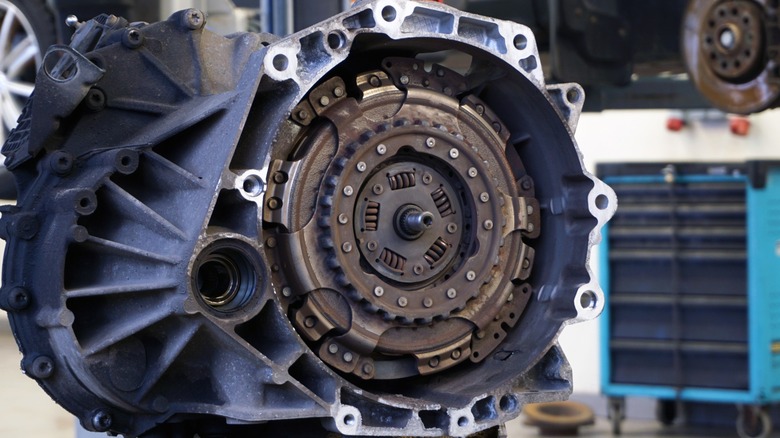We may receive a commission on purchases made from links.
The inaugural Volkswagen equipped with the automatic dual-clutch DSG (Direct Shift Gearbox) transmission was the 2003 Golf R32, a notable hot hatchback. Volkswagen produced the fourth-generation, Mk4 Golf from 1998 to 2004, unveiling the top-tier R32 variant in 2003. Initially, the 2003 R32 was exclusive to the European market, making its way to North America in 2004.
Advertisement
Although the Mk4 R32 isn’t the most potent VW Golf, with each generation surpassing the last in speed, it was powered by the reliable 3.2-liter VR6 engine, generating approximately 237 horsepower and 236 pound-feet of torque. This commendable power was complemented by the quick-shifting DSG transmission that truly distinguished the R32.
Prior to the DSG, most compact cars in Europe predominantly featured manual transmissions. While the debate between manual and automatic transmissions remains, the six-speed DSG in the 2003 R32 marked a notable advancement over the standard automatic options available at that time.
Advertisement
What makes the VW DSG transmission special?
Volkswagen describes the DSG transmission as merging “the convenience of an automatic with the precision of a manual.” It assesses driver inputs, speed, engine rpm, and selected driving mode through an array of sensors to determine optimal gear selection and shift points. According to Volkswagen, the DSG can transition to the next gear in “under four-hundredths of a second.”
Advertisement
The Tiptronic mode offers added control over shift points, allowing drivers to manually shift using the gear lever or optional paddle shifters on the steering wheel. This mode retains the quick-shifting traits of the DSG’s automatic functionality without requiring manual clutch activation.
Modern Volkswagen DSG transmissions feature 6 or 7 speeds with “two independent gear-box units” and internal dual-clutches. The dual-clutch DSG minimizes traction or power loss during gear changes. Although performance enhancements often come with sacrifices in fuel economy, Volkswagen claims its dual-clutch DSG boasts “increased efficiency while lowering emissions” through “power transmission with virtually no wastage.”
Advertisement
Are DSG transmissions reliable?
In general, the Volkswagen DSG receives recognition as one of the premier transmissions ever offered in a production vehicle. Most owner feedback shared on Reddit suggests the DSG transmission is reliable up to around 150K miles, after which internal clutch wear can lead to flywheel damage, transforming a simple maintenance task into a significant repair. This issue is exacerbated in powerful DSG-equipped vehicles, such as those with turbocharged larger engines and aftermarket modifications.
Advertisement
Comments on Bob is the Oil Guy forum reflect similar experiences regarding DSG longevity and highlight another concern for potential buyers of any dual-clutch transmission, including the DSG. Some forum users state that maintaining dual-clutch automatics incurs higher fluid change costs. For instance, “wemay” shared they paid $18 per liter for approximately 8 liters of fluid, plus $150 for a new filter to service their Mitsubishi DSG-style transmission ten years ago.
Users on the TDI Club forum report a 40K-mile service interval for VW DSG transmissions. For DIY enthusiasts, Amazon offers a Pentosin transmission fluid kit that includes 5 liters of FFL-2 fluid suited for dual-clutch DSG transmissions, along with a filter, for $141.66. Notably, Alex’s Autohaus in Midvale, Utah, confirms the 40K-mile service interval, listing DSG service rates from $400 to $700 depending on the vehicle.
Advertisement
